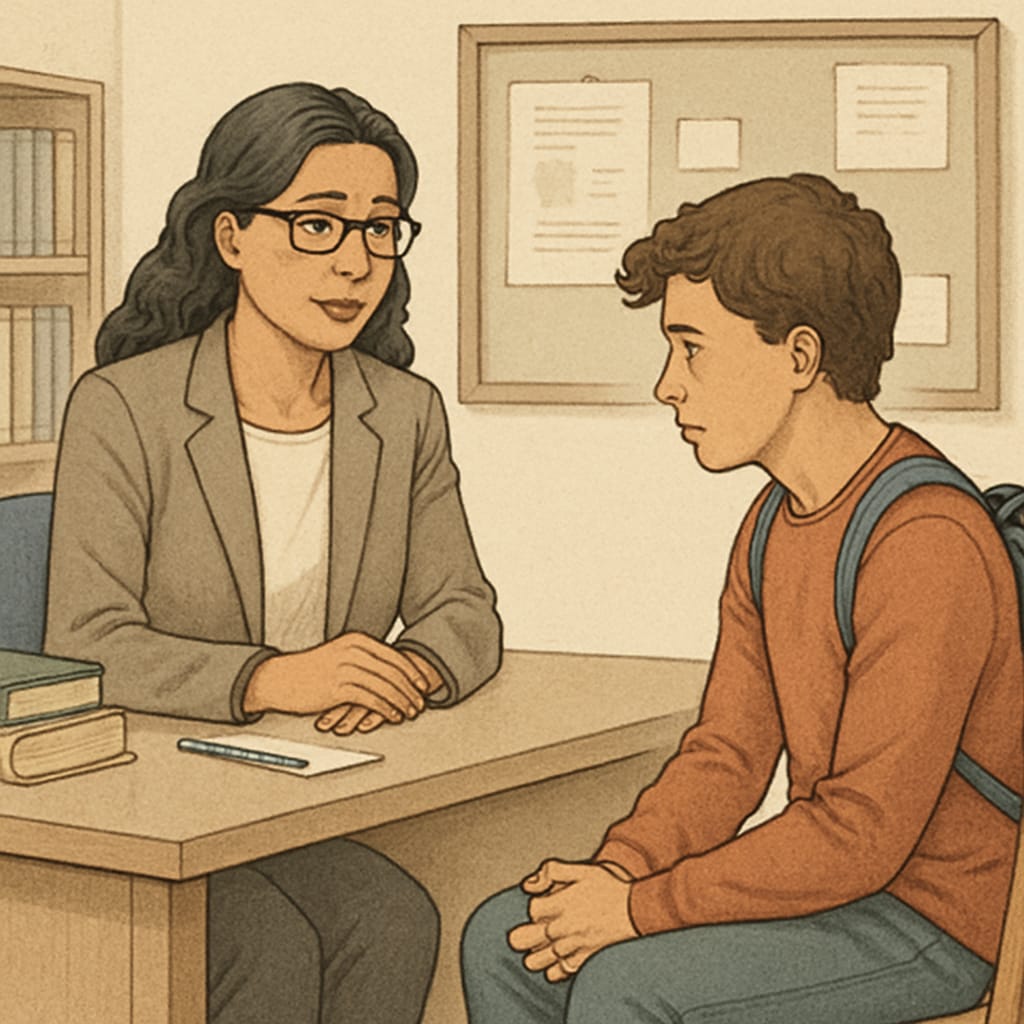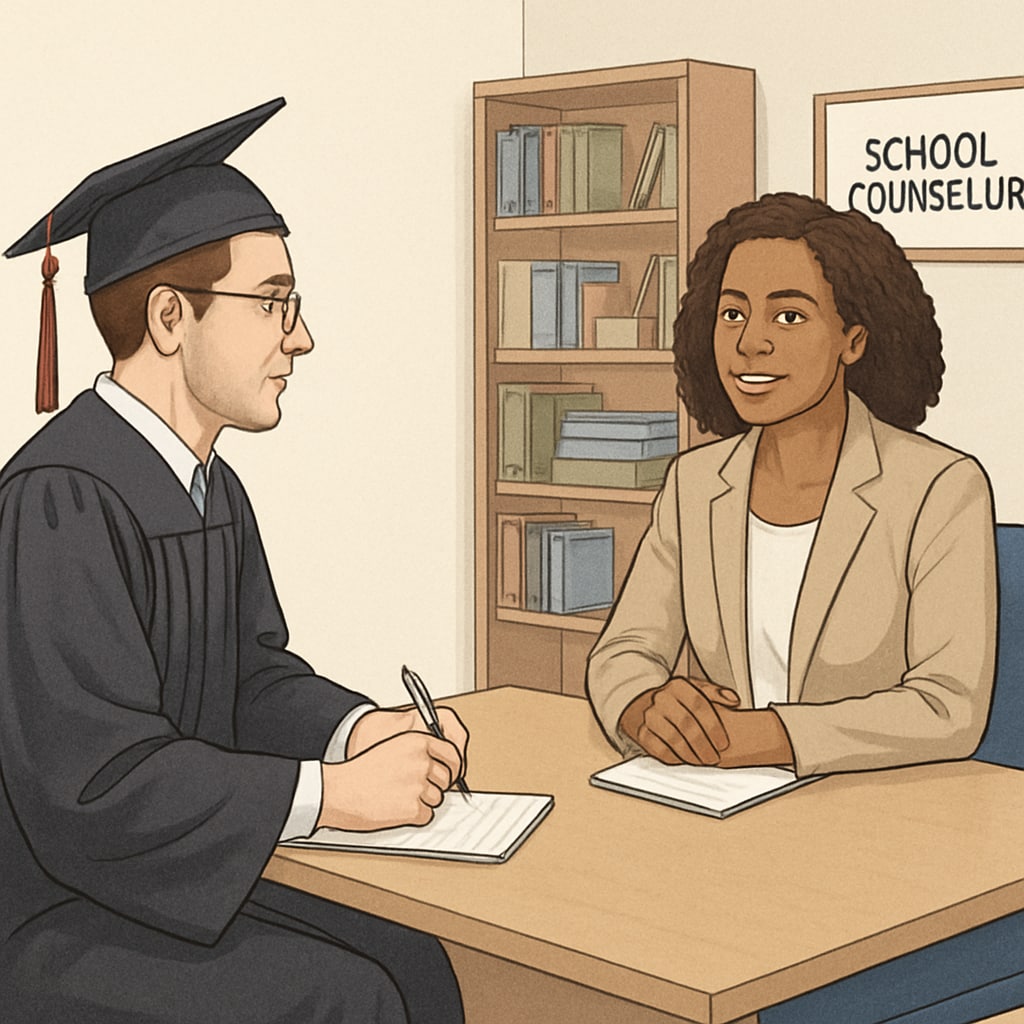Completing a graduate research project often requires firsthand insights from experts in the field. If your focus is on the K12 education system, locating and interviewing school counselors can provide a wealth of knowledge. This article offers detailed guidance on how graduate students can successfully find and interview K12 school counselors, ensuring their research is both comprehensive and impactful.
Why School Counselors Are Vital for Your Research
School counselors play a central role in supporting the academic, emotional, and social development of students. Understanding their responsibilities, challenges, and strategies can add depth to your research. Whether your graduate project focuses on mental health, educational policies, or student behavior, school counselors offer invaluable perspectives.

Steps to Locate K12 School Counselors
Finding the right school counselor to interview may seem daunting at first. However, by using the following strategies, you can simplify the process:
- Research Online: Many schools list their staff, including counselors, on their websites. Use these directories to identify potential interviewees.
- Leverage Professional Networks: Reach out to professors, colleagues, or education professionals who might have connections with school counselors.
- Utilize Social Media: Platforms like LinkedIn can be a useful tool for connecting with counselors or education professionals.
- Contact Schools Directly: If online searches don’t yield results, call school administration offices to inquire about their counseling staff.
By combining these methods, you’re likely to find counselors who are willing to share their expertise for your research.
Crafting a Professional and Compelling Outreach Message
Once you’ve identified potential interviewees, the next step is to reach out. A well-written message can significantly increase your chances of securing an interview. Here’s a template to consider:
Subject: Request for Interview: Graduate Research Project
Dear [Counselor’s Name],
I hope this email finds you well. My name is [Your Name], and I am a graduate student at [Your University]. I am currently working on a research project focused on [specific topic, e.g., student mental health in K12 schools].
As a school counselor, your insights would be incredibly valuable to my study. I would greatly appreciate the opportunity to interview you at your convenience. The interview would take approximately [time duration] and can be conducted in person or via [method, e.g., Zoom].
Thank you for considering my request. Please let me know if you would be open to participating or if you have any questions.
Sincerely,
[Your Full Name]
[Your Contact Information]
Make sure to personalize your message and be respectful of their time. A clear and concise email with a professional tone increases the likelihood of a positive response.
Interviewing School Counselors: Best Practices
Once you’ve secured an interview, preparation is key. Follow these tips for a successful and professional interview:
- Prepare Questions in Advance: Ensure your questions are relevant and open-ended to encourage detailed responses. For example, ask, “What challenges do you face in addressing students’ mental health needs?”
- Respect Their Time: Stick to the agreed-upon duration and express gratitude for their participation.
- Maintain Confidentiality: If the counselor discusses sensitive topics, ensure that any identifiable information is anonymized in your research.
- Record with Permission: If you plan to record the interview, ask for consent beforehand.
By adhering to these best practices, you’ll demonstrate professionalism and build rapport, which may lead to richer, more insightful responses.

Enhancing Your Research with Counselor Insights
School counselors possess firsthand knowledge of the challenges and successes within the K12 education system. Their insights can add depth to your research, helping you understand the real-world implications of your study. In addition, building connections with education professionals can open doors for future collaborations or career opportunities.
Lastly, remember that your research is not just an academic exercise—it has the potential to impact education policies, mental health initiatives, and more. Treat your interviews as an opportunity to learn and contribute meaningfully to the field.
In conclusion, locating and interviewing K12 school counselors requires a combination of research, communication, and professionalism. By following the steps outlined in this article, you can complete a high-quality graduate project while gaining a deeper understanding of the K12 counseling system.
Readability guidance: Use short paragraphs and lists to summarize key points. Keep passive voice and long sentences to a minimum. Distribute transition words evenly throughout the text (e.g., however, therefore, in addition, for example).


